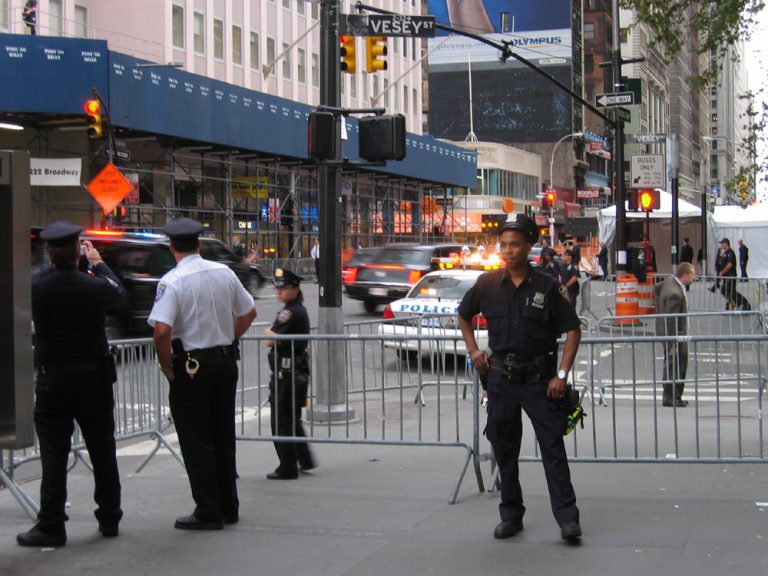
The Importance of Event Security in a Bustling Metropolis
New York City, often referred to as “the city that never sleeps,” hosts countless events daily, ranging from high-profile corporate gatherings to cultural festivals. The sheer scale and diversity of these events underscore the critical need for robust event security measures. Event security is not just about preventing mishaps; it ensures smooth event operations, safeguarding attendees, staff, and property. Given NYC’s dense population and high visibility, a comprehensive security strategy is essential to mitigate risks and maintain order.
Security teams are tasked with identifying potential threats, managing large crowds, and responding promptly to emergencies. With NYC being a global hub, the city attracts a mix of local and international visitors, increasing the complexity of event security. Professionals in this field must stay vigilant, ensuring that every event concludes without incident.
Key Elements of Effective Event Security in NYC
Event security in NYC involves meticulous planning and execution. It begins with risk assessment, where professionals evaluate the venue, size of the crowd, and nature of the event. This step helps in identifying vulnerabilities and devising strategies to address them. Technological integration, such as surveillance cameras and metal detectors, has become indispensable in modern security protocols.
Another critical aspect is crowd control. From concerts at Madison Square Garden to parades in Manhattan, managing large groups is a logistical challenge. Security personnel ensure orderly movement, prevent overcrowding, and maintain access points for emergencies. Collaboration with law enforcement agencies and local authorities further enhances the security net, ensuring swift responses to any arising issues.
The Role of Technology in Elevating Event Security Standards
In the digital age, technology plays a pivotal role in enhancing event security in New York City. Advanced surveillance systems equipped with AI-driven analytics can detect unusual activities in real time, enabling quick intervention. Facial recognition technology is increasingly used to identify potential threats, ensuring only authorized individuals gain access to restricted areas.
Moreover, communication tools have revolutionized how security teams operate. Real-time communication through encrypted channels ensures that all team members stay updated, allowing coordinated responses during crises. Event organizers are also leveraging mobile applications to inform attendees of safety protocols and emergency procedures, adding another layer of preparedness.
Challenges and Future of Event Security in NYC
Despite advancements, event security in NYC faces numerous challenges. The dynamic nature of threats, such as cyber-attacks and terrorism, demands constant adaptation and innovation. The high cost of implementing cutting-edge security measures can also be a barrier for smaller events. Additionally, maintaining a balance between thorough security checks and attendee convenience remains a constant struggle.
Looking forward, the future of event security in NYC lies in greater reliance on technology and collaboration. Integrating drones for aerial surveillance, employing AI for predictive analytics, and fostering partnerships with private and public sectors can address evolving challenges. As events in NYC continue to grow in scale and diversity, the role of event security professionals will remain indispensable in ensuring safe and successful gatherings.Event Security Management in NYC